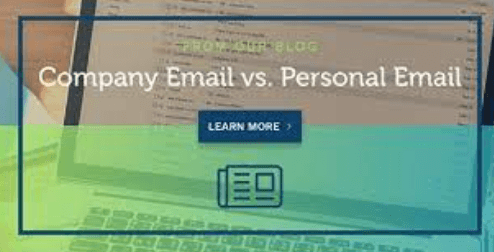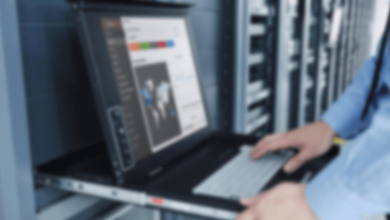Difference Between Personal And Business Gmail

According to recent statistics, email has become an integral part of our daily lives, with over 3.9 billion active users worldwide. Among the various email service providers available, Gmail stands out as one of the most popular choices.
However, it is essential to understand that there are distinct differences between personal and business Gmail accounts. This article aims to explore these differences objectively and analytically, providing valuable insights for individuals and businesses looking to make informed decisions about their email needs.
When considering personal Gmail accounts, it is important to note that they primarily cater to individual users for personal communication purposes. These accounts offer a range of features designed to enhance user experience and facilitate seamless communication among friends, family members, and acquaintances. From its intuitive interface and robust spam filtering system to its generous storage capacity and easy integration with other Google services such as Google Drive and Google Calendar, personal Gmail accounts provide a convenient platform for managing personal correspondence.
On the other hand, business Gmail accounts or G Suite (now known as Google Workspace) are tailored specifically for professional use by organizations of all sizes. Beyond providing a professional email address that aligns with the organization’s domain name (e.g., [email protected]), business Gmail offers enhanced security features such as two-factor authentication and data loss prevention tools. Moreover, G Suite includes advanced analytics and reporting tools that enable businesses to gain valuable insights into their email usage patterns and measure performance metrics effectively. With these additional functionalities designed for collaboration within teams or across departments, business Gmail addresses the unique needs of organizations seeking efficient communication channels in the workplace.
In conclusion, while both personal and business Gmail accounts share some similarities in terms of their core functionality as email service providers developed by Google; they differ significantly in terms of features offered and target audience served.
Personal Gmail accounts focus on enhancing individual user experience through an array of user-friendly features suitable for personal communication requirements. On the other hand, business Gmail accounts prioritize meeting the specialized needs of organizations, offering advanced security features and analytics tools to enable effective communication and collaboration within a professional setting.
Understanding these distinctions is crucial for individuals and businesses alike in choosing the most suitable option that aligns with their specific email needs.
Read also Choice Home Warranty George Foreman
Personal Gmail Accounts
Personal Gmail accounts are widely used by individuals for their personal communication needs, offering a convenient and efficient way to manage emails, connect with friends and family, and access various Google services.
One of the key concerns for users is privacy. Personal Gmail accounts provide users with a certain level of control over their data, allowing them to adjust privacy settings according to their preferences. Additionally, they offer advanced security features such as two-factor authentication and spam filters to protect user information from unauthorized access.
Another notable feature of personal Gmail accounts is the wide range of personalization options available. Users can customize their inbox layout, choose themes, and organize emails using labels and filters. This allows individuals to tailor their email experience according to their unique preferences and needs.
Overall, personal Gmail accounts offer individuals a reliable platform for managing their personal communications while providing flexibility in terms of privacy settings and customization options.
Features of Personal Gmail Accounts
One noteworthy aspect of Gmail accounts is the range of features offered for individual users. These features provide a high level of customization options that allow users to personalize their email experience.
Some key features include the ability to choose from a wide variety of themes and layouts, enabling users to create a visually appealing inbox that suits their preferences. Additionally, Gmail offers an extensive storage capacity, allowing users to store large amounts of data without worrying about running out of space.
This feature is particularly useful for individuals who receive and send numerous emails with attachments or need to store important files within their email account. Overall, these features enhance the user experience by providing flexibility and convenience in managing personal communications and information.
Business Gmail Accounts (G Suite)
Gmail for business purposes, known as G Suite, offers a range of features and tools designed to enhance productivity and streamline communication within professional settings.
With G Suite, users can create personalized email addresses using their domain name, which adds a level of professionalism to their online presence. This professional email management allows businesses to have a unified email platform that is separate from personal accounts, ensuring better organization and separation between personal and work-related emails.
Additionally, G Suite provides advanced security measures such as two-factor authentication and data encryption to protect sensitive information. Another benefit of using business Gmail accounts is the increased storage capacity, allowing users to store large amounts of data without worrying about running out of space.
Furthermore, G Suite offers collaborative tools such as Google Docs, Sheets, and Slides that enable teams to work together in real-time on documents, spreadsheets, and presentations. These features not only enhance productivity but also facilitate seamless collaboration among team members regardless of their physical location.
Overall, the use of business Gmail accounts through G Suite provides numerous advantages for professional email management and fosters efficient communication within the workplace environment.
Read also Tamil Rockers Proxy
Professional Email Address
A professional email address is an essential component of establishing a credible online presence, serving as a digital gateway that projects a polished and reliable image to potential clients or colleagues.
Creating a professional image begins with choosing an email address that reflects one’s identity and the nature of their business.
It is advisable to use a domain-specific email address, such as name@yourcompany.com, rather than a generic one like @gmail.com. This demonstrates professionalism and dedication to one’s work.
Additionally, maintaining proper email etiquette is crucial in maintaining professionalism.
This includes using appropriate language, being concise and clear in communication, responding promptly to emails, and adhering to any company policies or guidelines regarding email correspondence.
By following these practices, individuals can enhance their professional image and establish trust with their recipients while effectively conveying their message.
Enhanced Security Features
This paragraph will discuss two key security features of professional email addresses: two-factor authentication and data loss prevention.
Two-factor authentication adds an extra layer of security by requiring users to provide a second form of verification, such as a code sent to their mobile device, in addition to their password. This helps to prevent unauthorized access even if the password is compromised.
Data loss prevention, on the other hand, involves implementing measures to protect sensitive information from being accidentally or intentionally leaked or lost. This may include features such as email encryption, data classification policies, and automatic detection of potential breaches.
Two-factor authentication
Two-factor authentication greatly enhances the security of online accounts by requiring users to provide two forms of identification, such as a password and a unique verification code, thereby significantly reducing the risk of unauthorized access.
This multi-factor authentication adds an extra layer of protection to email accounts, ensuring that only authorized individuals can access sensitive information.
With two-factor authentication enabled, even if someone manages to obtain a user’s password, they would still need the second form of identification to gain access. This additional step provides an added level of security against hacking attempts and phishing attacks.
Furthermore, two-factor authentication also protects against brute force attacks by making it more difficult for hackers to guess or crack passwords.
By implementing this enhanced security feature, email providers like Gmail are addressing the growing concerns around email security and providing their users with peace of mind when it comes to protecting their personal and business information.
Read also Solargenerator Kaufen Wie Ist Der Jackery 2000w Pro Mccallins Outdoor
Data loss prevention
In addition to two-factor authentication, another important feature that distinguishes personal and business Gmail accounts is data loss prevention.
Data loss prevention refers to the measures taken to prevent the accidental or unauthorized loss of sensitive information. With regards to email, this involves implementing procedures and technologies that ensure the backup and encryption of data.
By regularly backing up emails, businesses can minimize the risk of losing critical information in case of hardware failures or other unforeseen events. Additionally, email encryption adds an extra layer of security by encoding the contents of emails so that they can only be accessed by authorized recipients.
This helps protect sensitive information from being intercepted or accessed by unauthorized individuals. By incorporating these measures into their email systems, businesses can safeguard their valuable data and ensure its confidentiality and integrity.
Administrative Controls
Administrative controls can be implemented to manage and regulate access to personal and business Gmail accounts. These controls play a crucial role in email management, ensuring that the appropriate individuals have access to the necessary information while maintaining security and privacy.
By implementing administrative controls, organizations can establish policies and procedures for user authentication, password management, and account permissions. This allows them to control who can access sensitive data within the organization and prevent unauthorized users from gaining entry.
Additionally, administrative controls enable organizations to set up monitoring systems that track user activity, helping identify any suspicious or malicious behavior. By having these measures in place, both personal and business Gmail accounts can be effectively managed and secured, reducing the risk of data breaches or loss while providing users with a sense of freedom knowing their information is protected.
Advanced Analytics and Reporting Tools
Advanced analytics and reporting tools act as a magnifying glass, enabling organizations to gain valuable insights into user behavior and email patterns, allowing for informed decision-making and proactive security measures.
With data visualization capabilities, businesses can easily interpret complex data sets and identify trends or anomalies in email communication.
By tracking email interactions, organizations can monitor the effectiveness of their email campaigns, measure response rates, and analyze engagement levels. These tools provide detailed metrics such as open rates, click-through rates, and conversion rates, helping businesses optimize their communication strategies.
Additionally, advanced analytics allow for the detection of suspicious activities or potential security breaches by identifying unusual patterns or unauthorized access attempts.
By leveraging these tools’ capabilities effectively, organizations can enhance their understanding of user behavior while safeguarding sensitive information through proactive monitoring and analysis.
Target Audience
In addition to providing advanced analytics and reporting tools, another key distinction between personal and business Gmail is the target audience it caters to.
While personal Gmail primarily serves individual users for their personal communication needs, business Gmail targets organizations and professionals who require a robust email solution for their work-related activities.
One of the primary features that sets business Gmail apart is its customization options. Businesses can create custom domain names for their email addresses, giving them a more professional appearance and enhancing brand recognition.
Moreover, business Gmail offers integration with other essential business tools such as Google Drive, Google Calendar, and Google Meet. This seamless integration allows users to access these tools directly from their email interface, enabling efficient collaboration and productivity within the organization.
By focusing on the specific needs of businesses, Gmail provides tailored solutions that enhance communication and streamline workflow processes.
Read also Locksmith Dc Servleader
Pricing
Pricing for Gmail varies depending on the plan chosen, offering a range of options to suit different budgetary constraints and organizational needs.
The cost comparison between personal and business Gmail accounts reveals that personal accounts are free of charge, while business accounts require a subscription fee.
Business plans come in various tiers, such as Basic, Business, and Enterprise, each offering different features and storage capacities at increasing costs.
While personal Gmail may be suitable for individuals or small organizations with limited email needs, business Gmail provides additional benefits like custom email addresses, enhanced security features, greater storage capacity, and access to additional productivity tools like Google Meet and Google Drive.
However, there are drawbacks associated with business plans as well. The cost can be prohibitive for small businesses or startups with tight budgets. Additionally, some users find the interface of the business version more complex compared to the simplicity of personal Gmail.
Nevertheless, considering the additional features and capabilities offered by business Gmail plans compared to its free counterpart makes it a worthwhile investment for many organizations seeking professional communication solutions.
It is important for organizations to carefully evaluate their communication needs and budget constraints before making a decision on whether to invest in a business Gmail plan.
Choosing the Most Suitable Option
One important consideration when selecting the most appropriate email solution is to carefully assess the specific requirements and constraints of an organization.
The decision between personal and business email accounts should be based on various factors, including the nature of communication, security needs, and professional branding.
Personal email accounts have their advantages, such as flexibility in terms of customization and ease of use. They are suitable for individuals or small businesses with minimal communication needs. However, they may lack certain features necessary for efficient business communication, such as advanced security measures and collaboration tools.
On the other hand, business email accounts offer enhanced security features like encryption and two-factor authentication, ensuring sensitive information remains protected. Additionally, they provide a more professional image with custom domains that align with the company’s branding efforts. Nevertheless, they may come at a higher cost compared to personal email accounts.
Ultimately, organizations must weigh the pros and cons of both options to choose an email solution that best suits their specific needs while considering budgetary constraints.
Frequently Asked Questions
Can I use my personal Gmail account for business purposes?
Using personal email for work can have drawbacks, such as unprofessionalism and security risks. However, using a business email account provides benefits like credibility, brand consistency, and enhanced security measures, making it more suitable for business purposes.
How can I set up a professional email address with my personal Gmail account?
Setting up a professional email address with a personal Gmail account allows for a more polished and credible image in business communications. Benefits include increased professionalism, brand recognition, and improved email deliverability.
Are there any limitations on the number of users that can be added to a business Gmail account?
There are limitations on the number of users that can be added to a business Gmail account. However, using a business Gmail account offers advantages such as increased storage capacity and access to additional collaboration and productivity tools.
What additional security features are provided with a business Gmail account compared to a personal one?
Enhance email security in a personal Gmail account by enabling two-factor authentication, regularly updating passwords, and being cautious of phishing attempts. Benefits of using a business Gmail account include added security features like advanced threat protection and data loss prevention.
Can I switch from a personal Gmail account to a business Gmail account without losing my emails and contacts?
The data migration process from a personal Gmail account to a business Gmail account allows for the transfer of emails and contacts without loss. Additionally, a business Gmail account typically offers higher storage capacity compared to a personal one.
Conclusion
In conclusion, the difference between personal and business Gmail accounts is significant.
Personal Gmail accounts are primarily designed for individual users and offer features such as email storage, spam filters, and basic organization tools.
On the other hand, business Gmail accounts, also known as G Suite, provide a more professional approach with enhanced security features and advanced analytics and reporting tools.
One major advantage of using a business Gmail account is the ability to have a professional email address that includes the company’s domain name. This creates a more credible image for businesses when communicating with clients or partners. Additionally, G Suite offers enhanced security measures such as two-factor authentication and data loss prevention to protect sensitive information.
Another significant feature of G Suite is the availability of advanced analytics and reporting tools. These tools allow businesses to gain insights into email usage patterns, track performance metrics, and analyze communication trends within their organization. This valuable data can help companies make informed decisions regarding their email strategies and improve overall efficiency.
The target audience for personal Gmail accounts is individuals who want a simple yet reliable email service for their personal use. In contrast, business Gmail accounts are tailored towards companies of all sizes that require a professional email solution with additional security measures and analytical capabilities.
When it comes to pricing, personal Gmail accounts are free to use while G Suite offers various subscription plans based on the needs of businesses. The pricing structure takes into account factors such as the number of users, storage requirements, and access to additional features like video conferencing.
To conclude briefly (TB), while personal Gmail accounts cater to individual users’ basic needs at no cost (BO), businesses can benefit from utilizing business Gmail accounts (G Suite) which provide an array of advantages including professional email addresses (PEA) enhancing credibility (EC).
Moreover (M), advanced security features ensure protection against unauthorized access (PA).
Finally(FY), detailed analytics enable organizations to make informed decisions improving productivity(PR).




